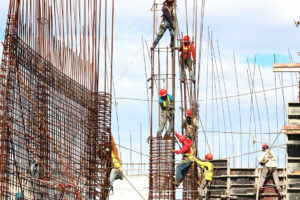THE reduction of the bank reserve requirement is expected to boost private construction, particularly for hotels, the Bank of the Philippine Islands (BPI) said.
“The new governor has moved away from the archaic policy of reserve requirements, which will provide liquidity that will help the private construction sector recover faster,” BPI Lead Economist Emilio S. Neri, Jr. said in an online briefing on Tuesday.
The Bangko Sentral ng Pilipinas (BSP) said in August that it will reduce the reserve requirement for universal and commercial banks and nonbank financial institutions with quasi-banking functions by 250 basis points (bps) to 7%, effective Oct. 25.
It will also cut the reserve requirement for digital banks by 200 bps to 4%. The ratio for thrift lenders will fall 100 bps to 1%, while that for rural and cooperative banks will fall 100 bps to 0%.
Mr. Neri added that the main beneficiaries will be the hotel and accommodations industry, especially amid low prices for construction materials.
“I think there are at least 150 to 170 new hotels being built as we speak, and more could actually come in to help offset some of the negative impact of the exit of POGOs (Philippine Offshore Gaming Operators) and traditional offices,” he said.
The President in July announced a ban on POGOs, which are now officially known as Internet Gaming Licensees (IGLs), effective by the end of the year.
“With lower inflation in construction materials, stronger peso to some extent, and loans being more readily available … there could be a big boom in accommodations, not just local brands but even foreign brands like Marriott and the like coming into the Philippines to compete with regional counterparts,” Mr. Neri added.
He also said private construction companies need to adjust to the decline in traditional offices due to remote work.
“Many Metro Manila and Metro Cebu residents are actually deciding to move away from the cities. They are no longer renting very expensive condominiums. They can decide to move elsewhere, a little bit farther from the cities, where the houses are more affordable or the rents are lower. This is good for residential real estate. And we’re actually seeing that happen,” Mr. Neri said.
Mr. Neri said that the private construction spending has been catching up to pre-pandemic levels, but is being weighed down by the exit of IGLs and the downsizing of offices with the onset of remote work.
“There are so many offices available in the market. A lot of them are also still being built at the moment. A lot of them are going to come on stream in the next few years,” he added. — Aaron Michael C. Sy

